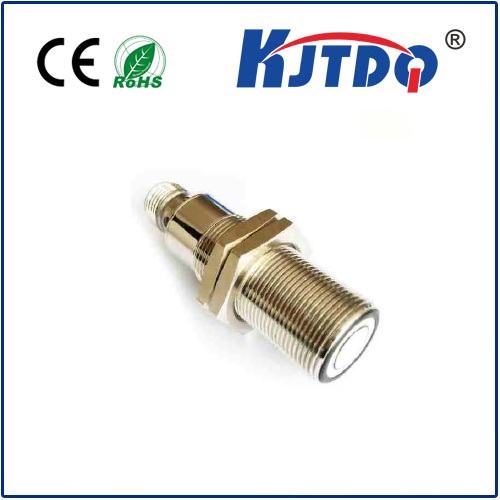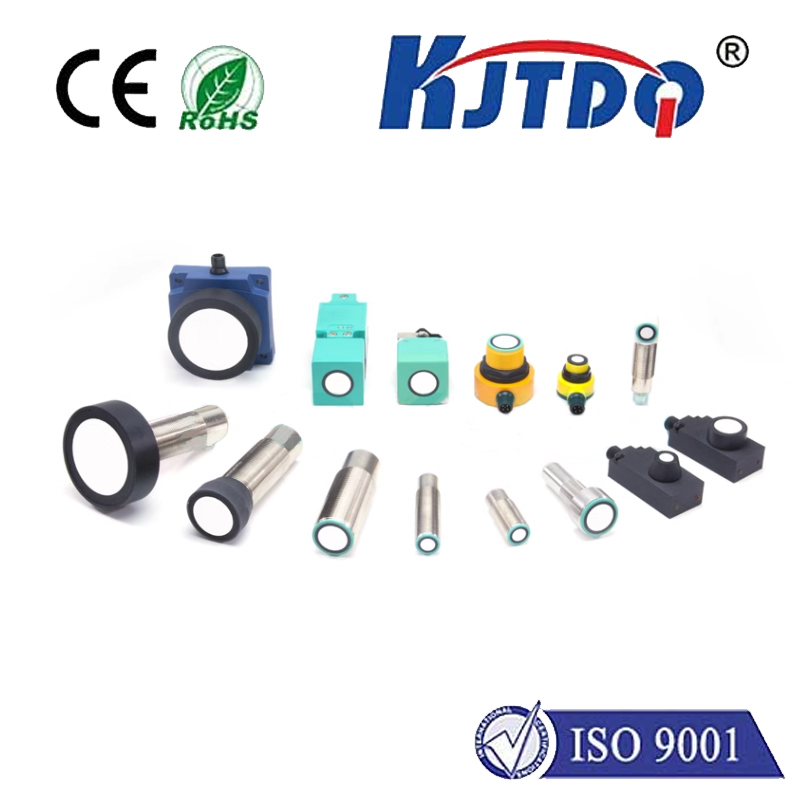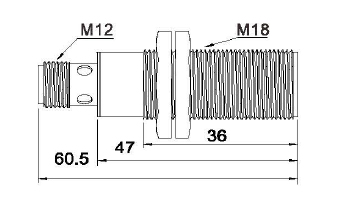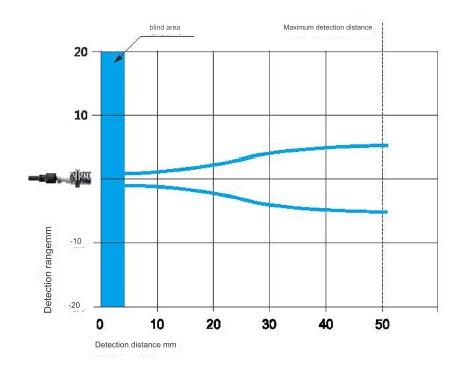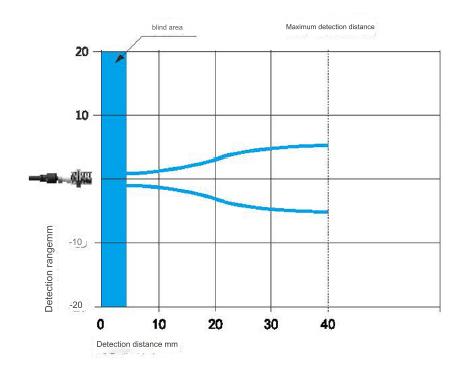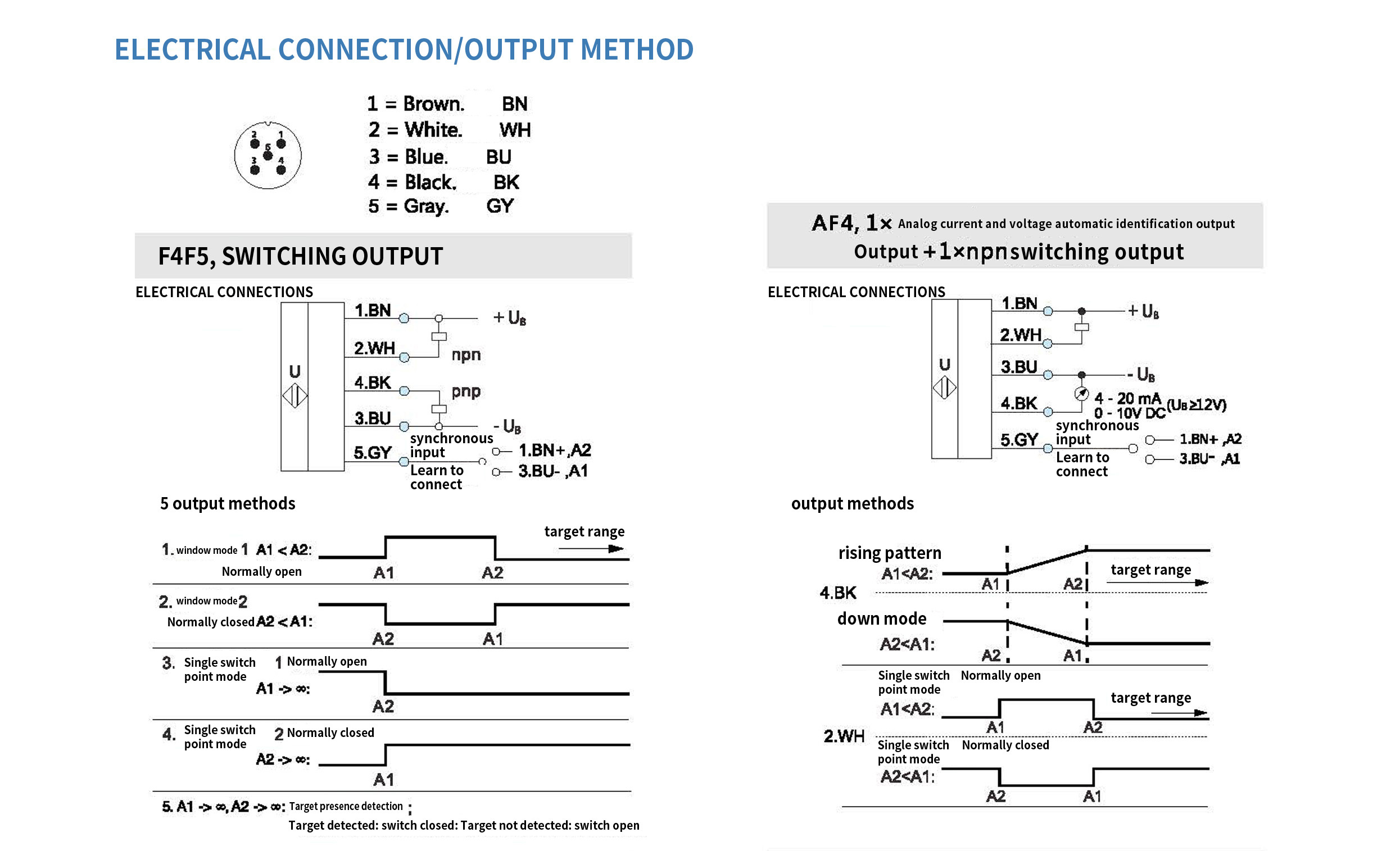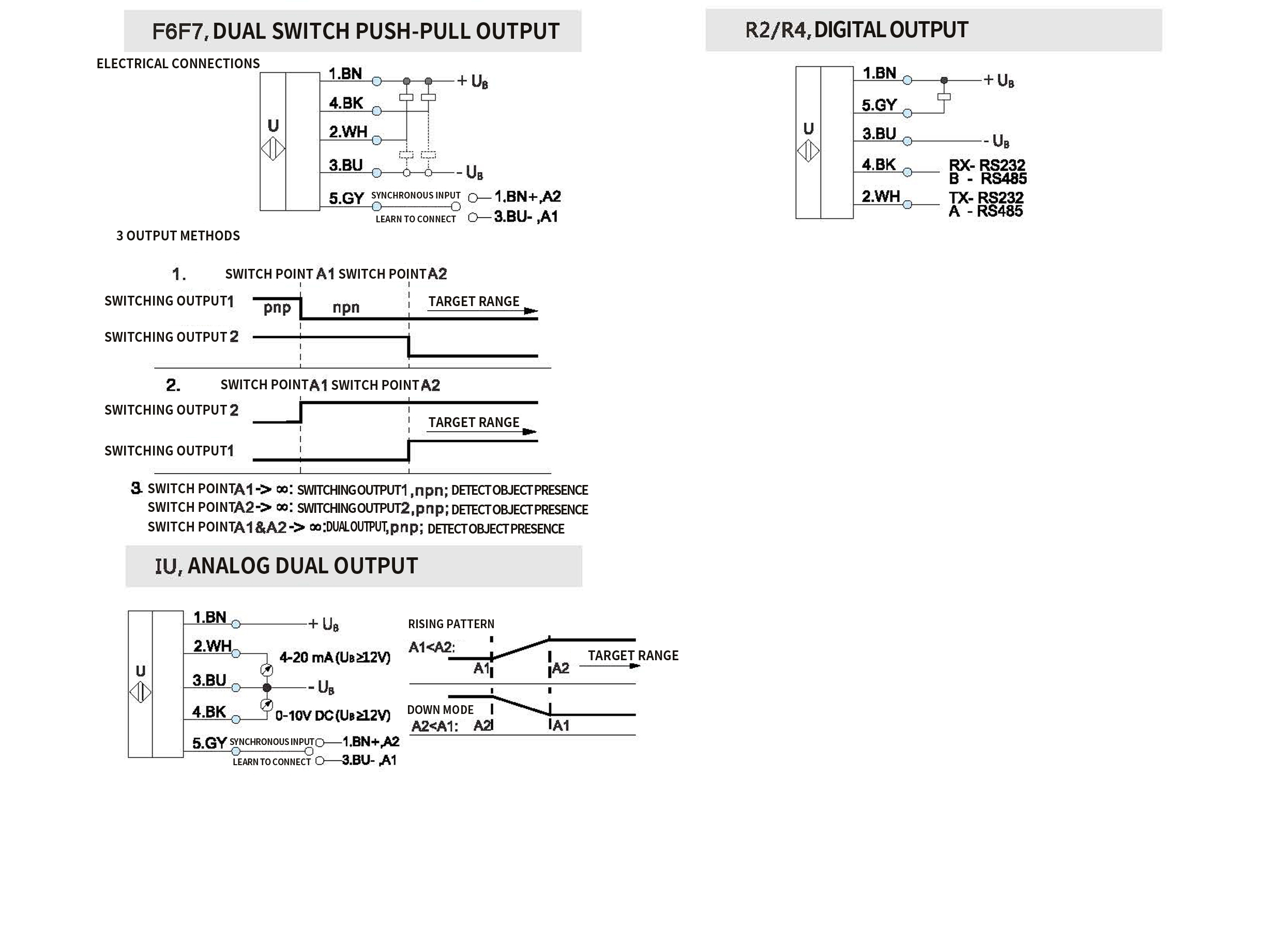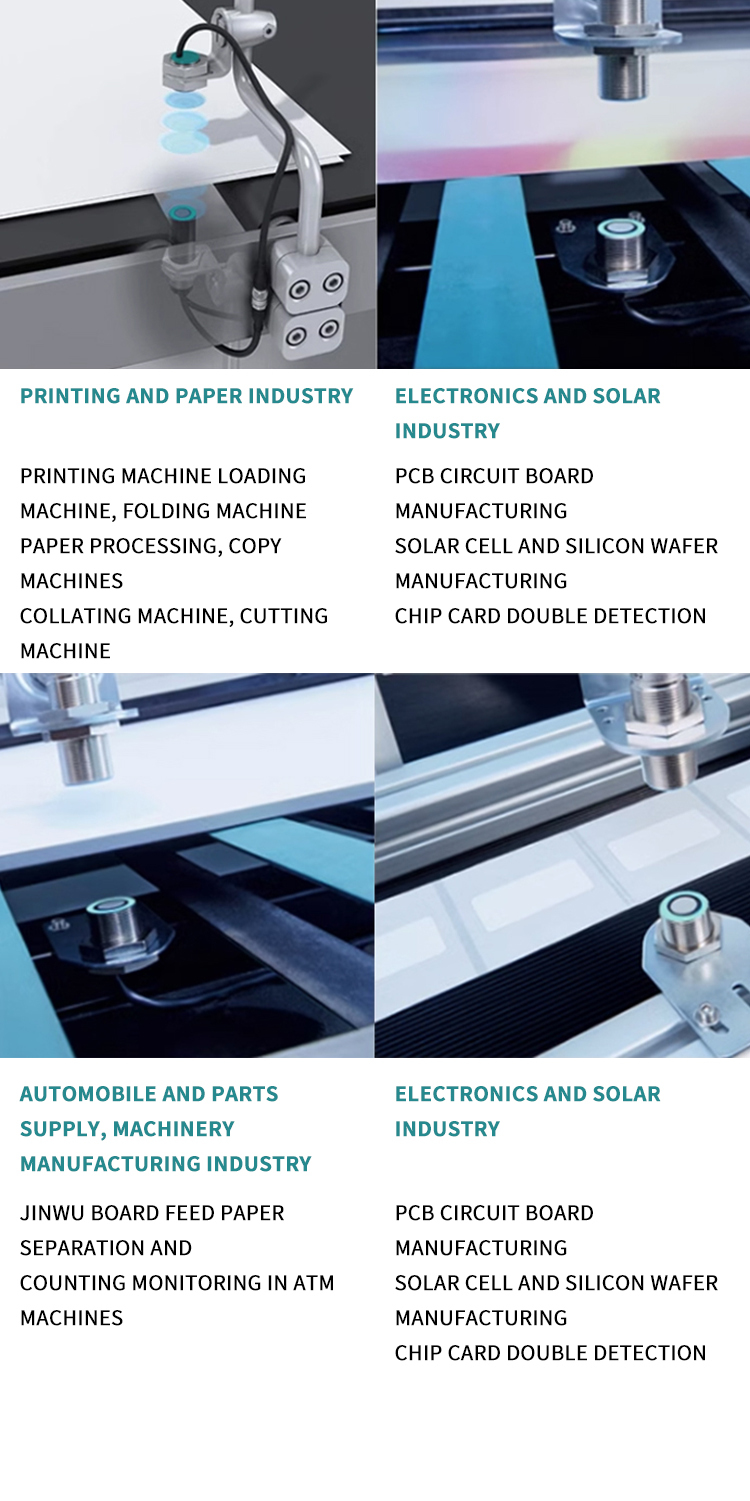Ultrasonic sensors use the characteristics of sound waves to provide a contactless and accurate detection solution for detecting the status and distance of objects. By emitting mechanical sound waves with high frequency, the sensor receives the sound waves reflected back from the object. By calculating the time or energy between transmitting and receiving the sound waves, the precise distance or status of the target object is obtained. Ultrasonic sensors are different from ordinary proximity switches and photoelectric sensors. Compared with inductive or capacitive proximity switches, its detection distance is longer. Compared with photoelectric sensors, it can be used in harsher environments and is not affected by the color of the target, airborne dust, water mist, etc. Suitable for detecting different

| model | KJT-U18B-50 | KJT-U18BA-50 |
| examination range | 3-50mm | 35-40mm |
| blind area | 0-3mm | - |
| resolution | 0.1mm | 0.1mm |
| Repeat accuracy | ±0.15% of full scale value |
| Accuracy | ±1% (built-in temperature drift compensation) |
| Response time | 2ms | 10ms |
| On-off level | 500Hz | 100Hz |
| switching hysteresis | 2mm | 2mm |
| Power-on delay | <500ms |
| Operating Voltage | 10-30V DC, UB≥12V |
| LED red light | No target, always on |
| LED green light | The target is detected and stays on. |
| Overload protection | 200mA, red light and green light flashing at the same time |
| No-load current | ≤30mA |
| Voltage drop | ≤2V |
| input type | No learning function, but synchronization function |
| Material | Nickel plated copper sleeve, plastic fittings, glass filled epoxy resin |
| Protection level | IP67 |
| Connection Type | 5 core M12 connector |
| ambient temperature | -25℃~+70℃(248~343K) |
| Storage temperature | -40℃~+85℃(233~358K) |
